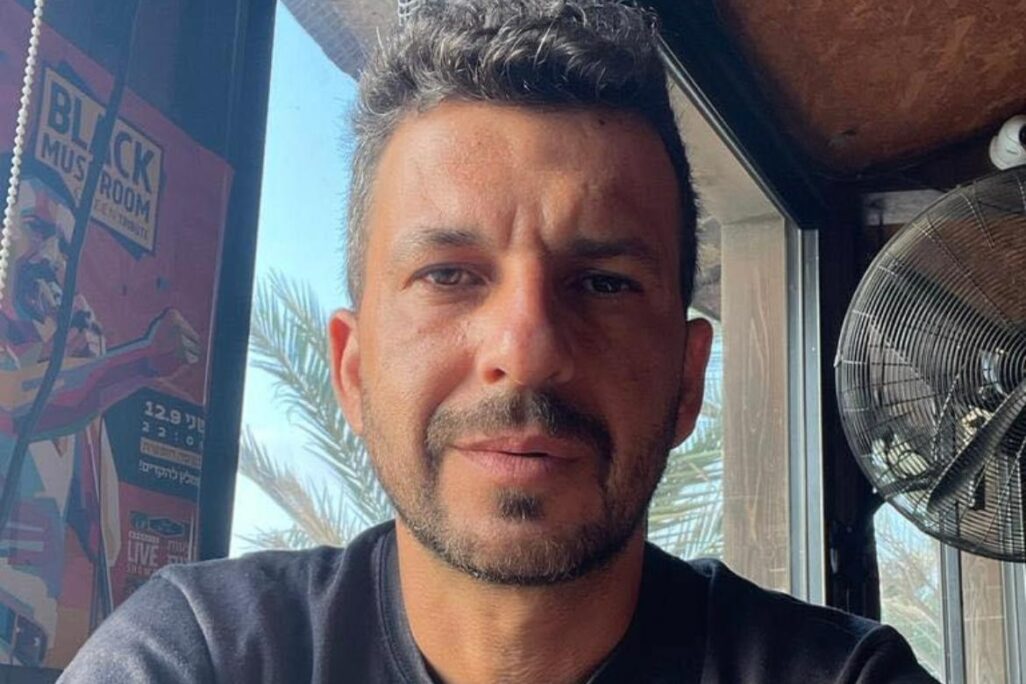
Tal Ovadia, a social worker, psychotherapist, and deputy director of social services for the mental health system at Barzilai Medical Center in Ashkelon, described a harrowing situation at the hospital amid the Hamas attack on Israel.
“We are treating all the casualties who arrive,” Ovadia said. “Many people are coming. The situation is not simple given the world of content some of them were exposed to and affected by. Although we are very well trained and have experience in this area, we have not seen an attack of this magnitude in the past 15 to 20 years. We are still in the implementation phase, and at the moment, we still can't fully grasp what we are dealing with."
He described waking up to an unexpected reality and rushing to the hospital. “Everyone who could come, everyone who was in the vicinity, everyone in their role, came in order to respond to the large numbers of casualties who had begun arriving since the morning. This also includes work in the emergency room, with the casualties and their families, as well as work at the family information center and the hospital’s call center.”
Ovadia could not provide precise figures on the number of casualties, but he says that out of the 39 social workers in the array, 15 were treating masses of wounded individuals at Barzilai Hospital, most of whom were suffering from anxiety on top of physical injuries. Among those treated are survivors from a massive Hamas attack on an outdoor rave party that took place near Kibbutz Re’em.
"We are hearing very harsh descriptions, both from those who came from the party and from people who arrived from the surrounding kibbutzim, as well as from the medical teams that treat the physical injuries, from the psychiatrists, and from those who come to us,” he said.
He explained that the psychological treatment for the survivors is based on established principles. “There is, essentially, a disruption of the routine here,” he said. “A person went to a party at night; he didn't think he would have to hide from terrorists. This disruption of the routine is what can potentially lead to post-traumatic stress if not addressed and treated.”
"When you encounter someone coming from trauma, in the initial treatment, the first thing that's most important to do is to establish your commitment to them. 'Hello, I'm Tal, I'm a social worker and I'm here,’” he explained. “Then, to create a sequence: You came from the party, you are now in the hospital, you're being examined, they’ve checked you, you're going to undergo such-and-such treatment and such-and-such testing. Then you'll be released, your parents will come to take you home. Then comes the encouragement to take action—call your parents, make your phone calls, etc."
"This entire conversation is very focused. At this point, we do not encourage associative thinking or anticipation. The goal of primary care is for the affected person to be focused, to reintegrate them into a routine. Then people are told that if in the next month they identify signs of restlessness, avoidance, intrusiveness—that's natural and normal, but if it continues, you should seek professional help,” he said.
Ovadia explains that the initial and focused intervention is not something only professionals can do. "Even civilians or soldiers can do this to support each other. Of course, we, as therapists, have the ability to assess if there is a need for a broader and more comprehensive focus, including the need for medication or even hospitalization,” he said.
Barzilai Hospital in Ashkelon is experienced in handling similar incidents, but the scale of the recent events is incomprehensible. "Because we already have experience from previous operations, we know how to be prepared. We know the first wave is happening now, but it’s not over now,” Ovadia explained. “And it's a dual struggle. You’re also dealing with the threat to you; right now, a rocket fell on Barzilai. And you’re also dealing with the feeling that you’re leaving your family and children at home. People here feel a tremendous commitment, that they are part of something bigger than themselves. So you function. But you can definitely go to sleep with it later."






